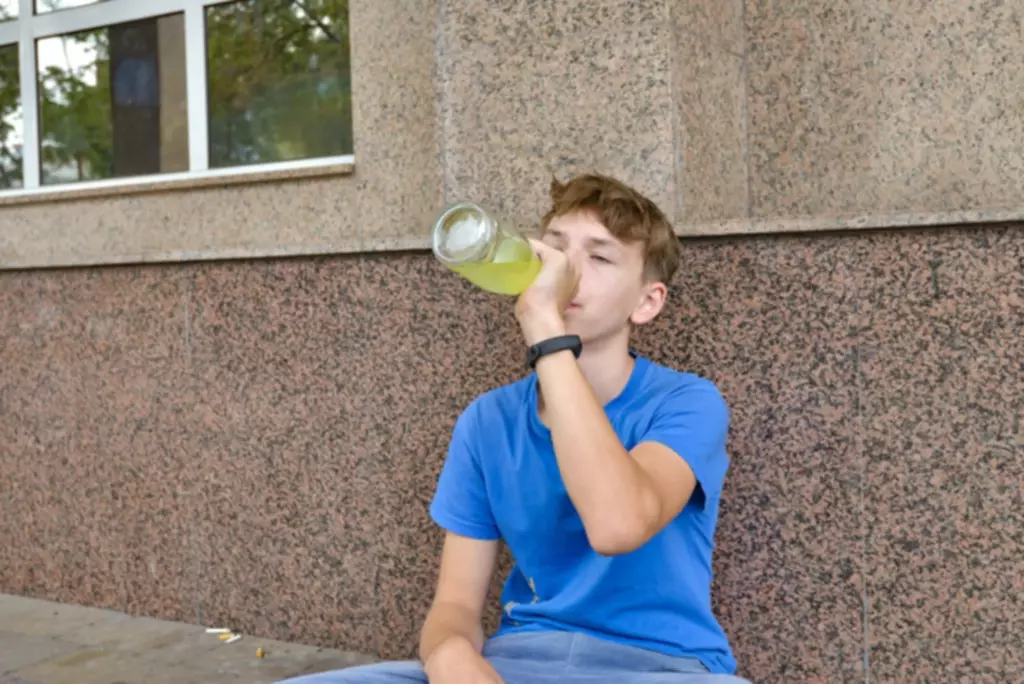Content
Exploration and experimentation in social relationships—including romantic relationships—are defining features of emerging adulthood (Arnett, 2000). Some people may be involved in exclusive relationships, and others may date several people simultaneously without making a commitment. Is it possible for a person to excessively drink alcohol and function properly in everyday life? For spouses or significant others, many feel that alcohol can negatively impact connections. Alcohol abuse and addiction certainly carry negative consequences on an individual’s health and well-being.

For individuals struggling with alcohol addiction, maintaining healthy relationships can be challenging, as alcohol can become the focus of their lives, and their loved ones may feel neglected or hurt. Being in a relationship with someone with alcohol use disorder can be challenging. Your husband may pick fights with you when he drinks or you’re no longer as intimate as you were before. You may feel https://ecosoberhouse.com/ like alcohol has ruined your relationship or is the cause of your divorce. When paired with problems that can also arise from excessive alcohol use, drinking can sometimes negatively affect our relationships with the people closest to us. If you feel drinking is negatively impacting your relationship or causing your partner to become argumentative, dishonest, or angry, then there’s a problem.
What Happens When an Alcoholic Starts Drinking Again?
Participants read through an online consent document and indicated that they understood the potential risks and benefits of participating. Just ask yourself why you feel the need to be dishonest about your drinking. Successful relationships are built on a foundation of honesty and trust, and any type of secrecy is a red flag. Your significant other fell in love with a certain person, but you might become someone else entirely when you drink alcohol. Maybe alcohol is a social lubricant for you, but its effects have been magnified in the recent past. A study by the American Academy of Child and Adolescent Psychiatry (AACAP) identified that 1 in every 5 adult Americans lived with a relative who abused drugs or alcohol during their adolescence.

We equally believe the family has the right and ability to take the first step to take care of their own needs. These changes initiated by the family often expedite the alcohol user’s willingness to do something different. Even in cases of bitter separations, both your situation and the alcohol user can benefit from a treatment plan and increase your opportunities to function independently.
Addiction Destroys Dreams, We Can Help
Other times, it can be larger issues, and one of the largest issues that a person can endure is alcohol use disorder, more commonly called alcoholism. Current research suggests that some alcohol expectancies may be context-specific. That is, certain conditions must be met for a particular alcohol expectancy to surface. For example, tension-reduction expectancies are triggered for people in a stressed state but not for people in a neutral mood state (Read and Curtin, 2007).
- Once the initial effects of alcohol wear off, it’s common to experience heightened depression, anxiety, and even anger and volatility.
- This can be challenging for the partner who is still craving sex and intimacy.
- Reclaim your life from alcohol abuse before it destroys your health and your relationships without necessarily needing residential rehab.
- People with Bipolar one disorder can become over-involved and, at times, obsessive with pleasurable activities.
Inversely, there is approximately an equal amount of individuals with a mental health issue who also have a drug or alcohol abuse problem (SUD or AUD). Alcohol use, whether abused or not, can mask and worsen existing mental illness. When an alcohol use disorder is present, it is often suggested to take into account the alcohol use before trying to make an accurate diagnosis of any possible mental health problems. Any and all diagnoses should be provided by a professional and not the alcohol user or their family and friends. Mental health issues are of great concern when you add substance abuse to the mix.
Sobriety Support
Naturally, the alcoholic parent may not be in a position to take care of a minor unsupervised. Indeed, research by the American Academy of Child and Adolescent Psychiatry (AACAP) suggests that one in every five adult Americans resided with a relative who abused alcohol in their adolescence. Not only can this lead to a child developing codependency on a loved one’s alcohol abuse but also have a greater likelihood of having emotional trouble compared with children growing up in households where alcohol wasn’t an issue. The impact of alcohol on relationships is widespread and can affect every single relationship a person is a part of. From intimacy problems and lack of emotional availability to the financial burden and negative effects on children, alcohol use disorder can affect partners, their children and other family members.
Thus, the significant concordance rate observed for heavy drinking reflects the fact that partners are more likely to be concordant than would be expected from mere base rates of heavy drinking. In absolute terms, there are many more couples who have discrepant drinking patterns, and most couples are concordant for nonheavy drinking. The small extant literature alcohol and relationships on nonmarital relationship statuses and alcohol/other substance use in emerging adults leaves a number of crucial questions unanswered. We were specifically interested in whether individuals who were dating several people differed in terms of their alcohol use and problems compared with those who were single or in an exclusive relationship.
Often, alcohol abuse triggers secretive behaviors
Residualized change scores are more reliable than difference scores and are less correlated with the scores that create them (Cohen and Cohen, 1983). Thus, change in alcohol problems was captured in a single variable, which we then used as the dependent variable in a two-way ANOVA. We examined the associations among romantic relationship status and alcohol use and problems during the first year of college. We also tested for potential sex differences, although we did not make any a priori hypotheses. Given the context-specific nature of alcohol expectancies, couples with concordant drinking patterns may develop different relationship-specific alcohol expectancies than couples with discordant drinking patterns. Specifically, we would expect concordant heavy drinking couples to hold stronger relationship-specific alcohol expectancies than couples with discrepant drinking configurations and concordant light/ abstinent couples.
- They may find their options for other social interaction limited, and this may further be compounded by financial troubles or other problems related to the incidence of alcoholism.
- They’re often aware that their friends and family’s disapproval would prevent them from drinking or using drugs.
- It is not uncommon for behaviors that lead to alcohol and drug addiction to be present prior to the introduction of drugs or alcohol.
- People who find themselves in a romantic relationship with someone struggling with alcoholism may end up making excuses for their lack of attendance or improper conduct at social functions.
- Greater drains on income and lessened opportunities may cause undue troubles for others financially dependent on the sufferer, requiring a spouse or roommate to pick up extra hours or a second job to keep bills at a manageable level.
- Being dishonest with your partner can fuel a sense of distrust, and lead to other unhealthy habits in your relationship.
Alcohol abuse disorder significantly alters an individual’s personality, and as a result, it can make them unrecognizable from the person they were before they started drinking. Individuals who have alcohol use disorder become more and more secretive, often out of fear, shame, or guilt. They begin to hide things from their significant other such as where they are, whom they are spending time with, and what they did during the day.
Prior to the start of the alcohol recovery process, it is suggested a plan be developed with a professional. The plan should consider boundaries and accountability for all parties involved in the recovery process. If you think you may need help, or just want more information, talk to your healthcare provider.
- That is, both partners are more likely to misconstrue the other’s behavior, be less able to resolve the situation without anger, and be more likely to engage in dangerous aggression that is likely to result in injury.
- Psychologists can also provide marital, family, and group therapies, which often are helpful for repairing interpersonal relationships and for resolving problem drinking over the long term.
- Here at Renaissance Recovery Center, we offer highly personalized outpatient programs, including virtual IOP, for alcohol use disorder.
- So, if you have a problem with drinking or drug use, it is worth it to enter treatment, not only for you, but also for your partner, children, friends, and others.

 Les Articles de ce Blog
Les Articles de ce Blog